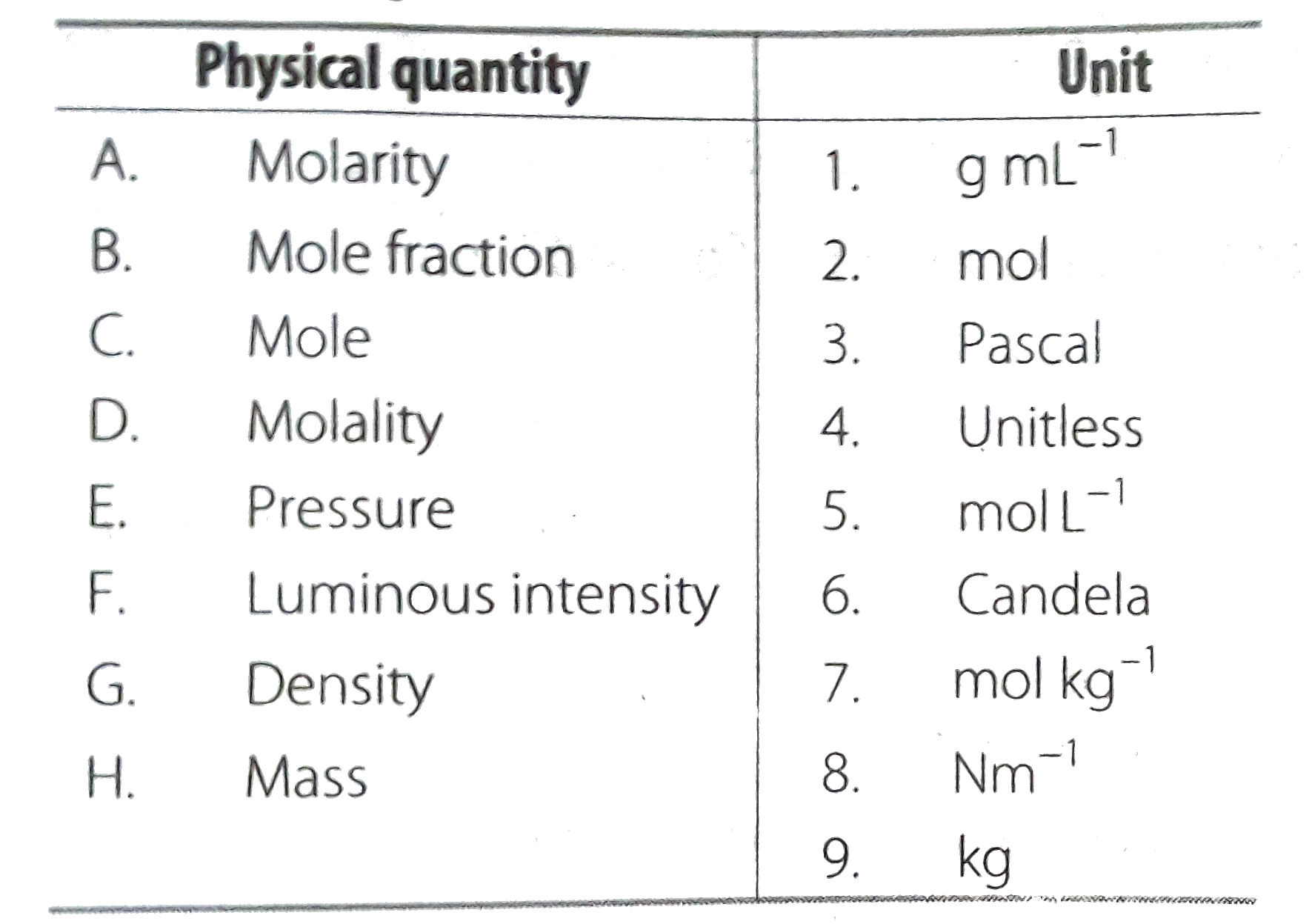Which one of the following physical quantities is not a fundamental quantity?
Luminious intensity
Thermodynamic temperature
Electric current
work
The correct Answer is:D
To determine which physical quantity is not a fundamental quantity, we will analyze the options provided:
1. Understanding Fundamental Quantities:
- Fundamental quantities are those that cannot be expressed in terms of other quantities. They are independent and serve as the building blocks for other derived quantities.
- There are seven fundamental quantities recognized in physics:
- Mass (m)
- Length (l)
- Time (t)
- Electric Current (I)
- Thermodynamic Temperature (T)
- Amount of Substance (n, mole)
- Luminous Intensity (Iv)
2. Analyzing the Options:
- Option A: Luminous Intensity: This is a fundamental quantity.
- Option B: Thermodynamic Temperature: This is also a fundamental quantity.
- Option C: Electric Current: This is a fundamental quantity as well.
- Option D: Work: Work is defined as the product of force and distance (W = F × d). Since force is a derived quantity (it is mass times acceleration), work is also a derived quantity.
3. Conclusion:
- Among the options provided, work is the only quantity that is not fundamental. Therefore, the answer to the question is Option D: Work.
Summary of Steps:
1. Define fundamental quantities.
2. List the seven fundamental quantities.
3. Analyze each option to determine if it is fundamental or derived.
4. Conclude that work is not a fundamental quantity.
- Fundamental quantities are those that cannot be expressed in terms of other quantities. They are independent and serve as the building blocks for other derived quantities.
- There are seven fundamental quantities recognized in physics:
- Mass (m)
- Length (l)
- Time (t)
- Electric Current (I)
- Thermodynamic Temperature (T)
- Amount of Substance (n, mole)
- Luminous Intensity (Iv)
- Option A: Luminous Intensity: This is a fundamental quantity.
- Option B: Thermodynamic Temperature: This is also a fundamental quantity.
- Option C: Electric Current: This is a fundamental quantity as well.
- Option D: Work: Work is defined as the product of force and distance (W = F × d). Since force is a derived quantity (it is mass times acceleration), work is also a derived quantity.
- Among the options provided, work is the only quantity that is not fundamental. Therefore, the answer to the question is Option D: Work.
1. Define fundamental quantities.
2. List the seven fundamental quantities.
3. Analyze each option to determine if it is fundamental or derived.
4. Conclude that work is not a fundamental quantity.
Topper's Solved these Questions
- UNITS AND MEASUREMENTSBook:NCERT FINGERTPS ENGLISHChapter:UNITS AND MEASUREMENTSExercise:Higher Order Thinking Skills
Explore 10 Videos
- UNITS AND MEASUREMENTSBook:NCERT FINGERTPS ENGLISHChapter:UNITS AND MEASUREMENTSExercise:Exemplar Problems
Explore 12 Videos
- THERMODYNAMICSBook:NCERT FINGERTPS ENGLISHChapter:THERMODYNAMICSExercise:Assertion And Reason
Explore 15 Videos
- WAVESBook:NCERT FINGERTPS ENGLISHChapter:WAVESExercise:Assertion And Reason
Explore 15 Videos
Similar Questions
Knowledge Check
Which of the following physical quantities have into same dimensions ?
Amomentum and impulseBpressure and Young's modulusCenergy and angular momentumDforce constant and moment of inertiaWhich of the following physical quantities has a unit but no dimensions?
ARelative velocityBRelative densityCStrainDAngle
Which of the following physical quantities is not conserved?
View SolutionWhich of the following physical quantities is an axial vector ?
View SolutionWhich one of the following quantities is a scalar ?
View Solutionwhich one of the following is a scalar quantity?
View SolutionMatch the following physical quantities with units.

View SolutionWhich of the following physical quantities do not have same dimensions ?
View Solution

